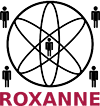Swiss Ai Research Overview Platform


New speech technologies to identify criminals
The rise of organised criminal networks in the European Union is facilitated by new travelling possibilities and new technologies. Fighting organised crime has become a top priority for European law enforcement agencies (LEA). The EU-funded ROXANNE project intends to combine new speech technologies, face recognition and network analysis to facilitate the identification of criminals. Specifically, ROXANNE will develop a platform that will increase agencies’ capabilities via voice recognition, language and video technologies. The project will support LEA’s activities through multilanguage applications based on voice, text and face technologies. ROXANNE, in conformity with Interpol and EU regulations, will be tested on real case data in nine EU Member States.
Discovering criminal networks and identifying their members is one of the primary aspects of LEAs' mission. ROXANNE will contribute towards this goal by bridging the strengths of speech and language technologies (SLTs), visual analysis (VA) and network analysis (NA). ROXANNE aims at achieving a significant increase in the speed of investigation processes and an improvement in identification of individuals by means of speech, in the scope of criminal cases where large amounts of lawfully intercepted communications (with multilingual attributes) are analysed. The technical development will be centred around the ROXANNE platform, which will enhance criminal network analysis capabilities by providing a framework for extracting evidence and actionable intelligence based on speech, language and video technologies. The intention is not to replace humans but automate time-consuming tasks, and support LEA decisionmaking. Its early version will offer preliminary SLT, VA and NA capabilities to collect end-user feedback. The final version will provide multilingual, probabilistic tools interfacing SLT and NA technologies, boosted by natural language processing (NLP) and relation analysis in the synoptic criminal activity graph. ROXANNE will achieve full compliance with relevant INTERPOL and EU legal and ethical frameworks, including innovative approaches to data protection management such as privacy by design. Special efforts will be expended to ensure ROXANNE outcomes achieve widespread adoption by law enforcement. The effort will be enhanced through a series of education and awareness campaigns and the direct involvement of LEAs from nine European countries, that will test our solutions on real case data. In addition, ROXANNE partner INTERPOL and EUROPOL (member of the External Advisory Board) will provide advice and guidance. The consortium has 24 partners with complementary skills, including leaders in key technology areas impacting criminal investigations.
Last updated:20.06.2022